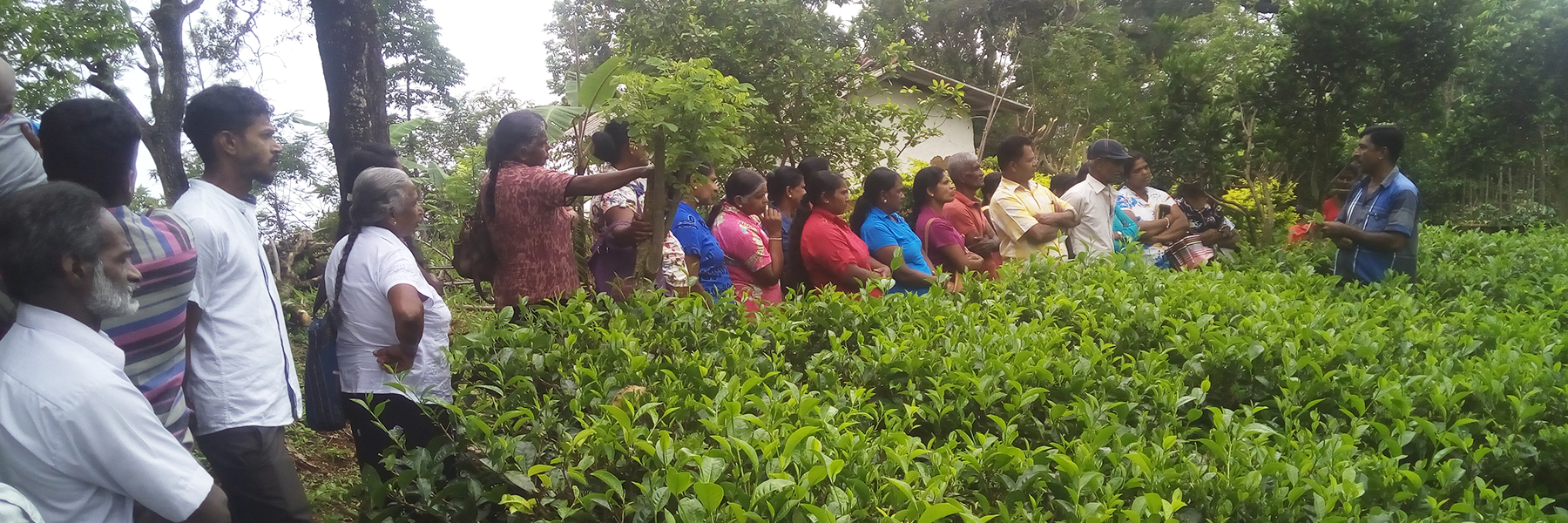Focal Area:Protecting the environment associated with critical watersheds by intervening land and forest degradation in the South Central region of the island in a manner contributing towards the reduction of poverty through the improvement of agricultural productivity and employment opportunities.
Duration: November 1998 – 31 December 2005
Donor: Implemented by Ministry of Environment, Sri Lanka and funded by Asian Development Bank
Budget: allocation (actual): $ 17.5 millions
Brief summary of activities and relevance to SLM FAO project:
The project was designed to address issues related to watersheds management with the following objectives.
- To reduce soil erosion and maintain sustainability by promoting conservation-oriented farming
- To reduce adverse environmental impacts on protected forests through rehabilitating, protection, and controlling encroachment pressures
(Asian Development Bank, 2006)
To achieve the above targets the project activities were categorized into three components i.e.
I. Conducting participatory rehabilitation and protection of forests:
This resulted in 2,328 ha of rehabilitated forest lands, 508 ha of forest plantations (unfortunately at the completion of the project the 25-year lease agreements had not been finalized) and establishment of 18,789 home gardens. Other related outputs realized at the end of the project include: clearly demarcating 729 km of boundaries of forest reserves under the purview of the Forest Department and Department of Wildlife Conservation; 1,002km of fire protection lines, mapping of 408km of stream bank reservation areas (excluding private lands), planting of trees along 85km of the roadside, planting of trees in 76 ha of public space and 350 ha of Pinus/Eucalyptus replaced by indigenous trees.
II. Promoting conservation oriented farming systems:
The extent of 12,196 ha of agricultural land were protected through mechanical and vegetative conservation measures; Integrated Pest Management methodologies; usage of composting and reduction of non-organic fertilizer usage (to improve crop productivity, quality and profitability); raising awareness about post-harvest technology and improved irrigation/water distribution systems resulted from project activities. Furthermore, equipment and infrastructure for keeping cattle and bees and better breeds of calves were distributed. These activities benefited 100,000 farmers directly or indirectly. Off farm activities resulted in 346 km of structures to intervene run off and scouring built by CBOs under the guidance of the Department of Agrarian Services and the DS divisional technical staff. 118km of agro-roads were also constructed by CBOs under the guidance of the DS division staff. It is noted that the farmers and CBOs responded particularly well to this component.
III. Capacity building and institutional strengthening activities
In total 384 training events involving 17,445 people were conducted for farmers, implementing agency staff and mobilizers. 87 workshops and seminars involving 500 people were also conducted. Media awareness programs conducted on watershed management, maps demarcating project interventions were developed along with other activities such as preparation of resettlement plans for 3 of the 10 sites. The drafting (and the subsequent parliamentary approval of the National Watershed Management Policy was also an important outcome of this project. Under this project, provincial councils were also supported to develop plans for the Provincial Water Management Units.
Key lessons which the UWMP could provide the FAO SLM project are:
- Considering the distance between activities, where participatory activities are taking place, and the community is important.
- The efficiency of the project increases when using social mobilisers to increase community participation (in planning, implementing, managing and maintaining field activities), and when engaging with existing CBOs. This is further enhanced when activities pertaining to a devolved topic such as agriculture are conducted with the participation of all implementing agencies.
- Regularizing land tenure encourages farmers to invest in the land itself.
- Publicity programmes improve awareness activities.
- The need for project frameworks to be dynamic.
- The need to ensure that institutions internalize project outputs, particularly those which impact the activity of institutions.
- When possible, allocate required time for implementing agencies to come together and plan and prepare strategically.
- The need to have systems to monitor and evaluate baked into project plans. (Asian Development Bank, 2006)

